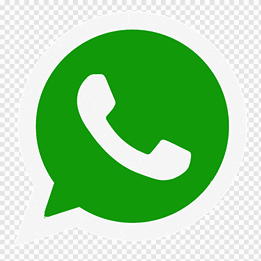Additional body fluid loss at lower temperatures can be the same as in summer, due to high energy consumption, many layers of clothing and increased need to urinate.
As we feel less thirsty on colder days, many people forget about optimal fluid intake. Even though it is not hot, so we sweat less than in summer, we still lose fluid - by breathing cold and dry air, through the skin, secretions, diuretics such as some diuretic teas (green tea, black teas, nettle tea, dandelion leaf tea and roots, grape tea...) and coffee, which is a strong diuretic. Dehydration (a condition when a person loses more fluid than he took into the body) is also possible in winter, because our body loses water more due to the cold and dry air. With this dehydration, we slow down the metabolism and encourage the development of bacteria and viruses in our body. For a faster metabolism, in addition to drinking water, we recommend the detox formula (more about it HERE), for stronger immunity Echinacea plus formula (more about it HERE). In addition, additional body fluid loss in colder temperatures can be equal to that in warm climates due to high energy expenditure, many layers of clothing, and increased need to urinate. In addition, it should be borne in mind that we lose fluid due to the fact that our sweat evaporates quickly in the cold, dry air. But is liquid really that important for health, and are the endless articles about its importance and the famous two liters just a myth?
Unlike food, our body needs water on a daily basis. We will survive if we don't eat anything for a few weeks, but without water we would die within a few days. The consequences of lack of water in the body can really be great. If we are seriously dehydrated, we lose physical and mental abilities.
Indigestion and lack of water
Chronic dehydration increases the risk of numerous diseases and health complications. Some of the most common are indigestion - flatulence, nausea, constipation, inability to sweat, increased possibility of blood clot formation, because water thins the blood, so it is very important to drink a sufficient amount of pure still water throughout the day (as recommended at the end of the article) and especially in the morning, for 1-2 hours drink slowly, at least 0.5L to 1L of clean spring water or filtered water. Also, more and more elderly people are admitted to the hospital due to impaired health caused by insufficient fluid intake. Although water is an essential nutrient in the life of every human being, most of us will show more enthusiasm for food than for liquid. Often after drinking a glass of water or juice, we realize that we felt weak due to dehydration.
Water is not just a liquid
The body of most people in the world is actually insufficiently hydrated due to lack of habit of regular fluid intake or simple forgetfulness. Dehydration, therefore, can be the reason why our body does not function properly, and the consequences are headache, fatigue, lack of concentration and weaker physical abilities. The loss of water, which amounts to about two percent of body weight (about 1 l), can have a very bad effect on our ability to remember and on attention and motor movements, experts warn. They also emphasize that fluid intake does not only apply to water, but also to freshly squeezed juices or herbal teas.
SIGNALS THAT INDICATE THAT WE ARE DEHYDRATED
In addition to the already mentioned symptoms of dehydration, there are several other indicators that point to a lack of water. Thirst and dry skin is a warning mechanism that tells us that serious dehydration has occurred. A simple indicator is the color of urine. The darker it is, the greater the degree of dehydration. In the morning, the urine is very dark yellow, which indicates that you should drink clean water in the morning, at least 0.5 l. The optimal color of urine is clear. The recommended daily amount of liquid, pure filtered non-carbonated water, can be bought from the store, is less evil than tap water, freshly squeezed juice or herbal tea (chamomile, mint, ginger...) for an adult is three liters. For a child weighing 30 kg, 1 L of liquid should be enough for the whole day. These numbers can be higher, considering the type of occupation, temperature and amount of humidity in the air, amount of activity during the day, diet... If you urinate during the night, drink that amount of liquid by 5-6 pm or earlier.
HOW TO HYDRATE THE BODY FOR COLD DAYS?
Drink enough fluids. Drink regularly, even if you are not thirsty, because the feeling of thirst is less pronounced when it is cold, and this can lead to dehydration. Avoid wearing too many layers of warm clothing as this can cause increased sweating and loss of water and mineral salts. Although the color of urine is a good indicator of body hydration, cold stress can cause increased excretion of diluted urine. Cold and dry air outdoors and heating indoors can cause water loss from the skin, which becomes dry and cracked. Strenuous physical activity in the cold can increase water loss due to faster and deeper breathing.
Drink a sufficient amount of clean still water every day. We recommend that you drink verified spring water or purchased still water, which is less evil than that from the tap, or that you get a reverse osmosis filter. Along with clean water, you can also drink freshly squeezed juice or herbal tea (chamomile or mint or ginger...). Completely avoid teas that are diuretics: nettle, dandelion, bearberry, green tea...and coffee... To get an accurate calculation of how much fluid you need to drink, divide your body weight by thirty (kg of body mass: 30 and that's the minimum). For example, if you have 60 kg :30= 2L. So, you should drink 2 liters of water throughout the day. This example is given only if it is winter, spring or autumn, if it is summer the fluid intake should be increased.
* If you sleep or often stay in a room where the air is dry, you can dehydrate
*If your skin is dry after showering, this is due to the chlorine in city water, a great solution is to buy a shower filter with activated carbon
You can read more information about dehydration HERE
For all other questions, you can contact our team of phytotherapists at 092 352 7589 or 099 645 0504




